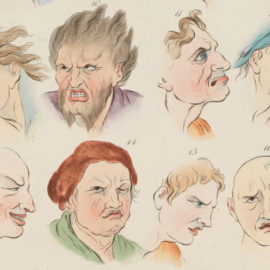

This article is an excerpt from the Shortform book guide to "The Winner Effect" by Ian Robertson. Shortform has the world's best summaries and analyses of books you should be reading.
Like this article? Sign up for a free trial here.
Have you ever wondered how your body chemistry influences your achievements? What happens physically when you taste success, and how does it impact your future performance?
The relationship between testosterone and success extends beyond what we might expect. In his book The Winner Effect, Ian Robertson writes that testosterone levels increase when we win, shaping both our confidence and behavior in complex ways.
Read on to discover how this powerful hormone can both propel your success and potentially derail it if left unchecked.
Testosterone and Success
One factor influencing your ability to achieve, maintain, and build upon success is your biology—specifically, the neurochemicals and hormones your body releases when you anticipate or experience success. Robertson specifically discusses the connection between testosterone and success.
When you experience success, your body increases your testosterone levels. Robertson explains that this hormone creates both immediate and long-term effects: It boosts your confidence and willingness to take risks in the short term and, with repeated successes over time, it accumulates in your bloodstream to reinforce these traits. This increases your desire to face obstacles and pursue increasingly challenging opportunities. For example, increased testosterone levels might drive the business executive to expand into new markets that they previously considered too challenging.
(Shortform note: While experiencing success can increase testosterone levels, research suggests that this increase is too small and transient to result in long-term accumulation in the bloodstream. This implies that repeated experiences of success directly reinforce traits such as confidence and risk-taking not through a physical buildup of testosterone, but through the experiences themselves.)
High Testosterone Alienates Others
While increased testosterone can boost both short-term and long-term confidence, Robertson warns that excessively high levels can result in increased aggression, impulsivity, and reduced empathy. These behaviors can alienate others, lead to poor strategic choices, and ultimately undermine the very success that led to the testosterone increase in the first place. For example, the business executive might ignore advice and dismiss a lucrative partnership opportunity because they’re overly confident in their ability to succeed alone.
(Shortform note: While Robertson argues that testosterone causes behaviors that either foster success or lead to its downfall, Robert Sapolsky (Behave) offers a more nuanced perspective: Testosterone’s effects are highly context-dependent. Rather than simply boosting confidence or causing aggression, testosterone amplifies existing tendencies within specific social contexts. For example, if you’re naturally inclined to cooperate and are in a collaborative environment, increased testosterone might enhance prosocial behaviors. Or, if you tend to be competitive and are in a hierarchical setting, it might intensify assertive or dominant behaviors.)

———End of Preview———
Like what you just read? Read the rest of the world's best book summary and analysis of Ian Robertson's "The Winner Effect" at Shortform.
Here's what you'll find in our full The Winner Effect summary:
- Why some people struggle to go after what they want in life
- The five interrelated factors that shape your ability to achieve
- How your parents and educators play a huge role in your future success






